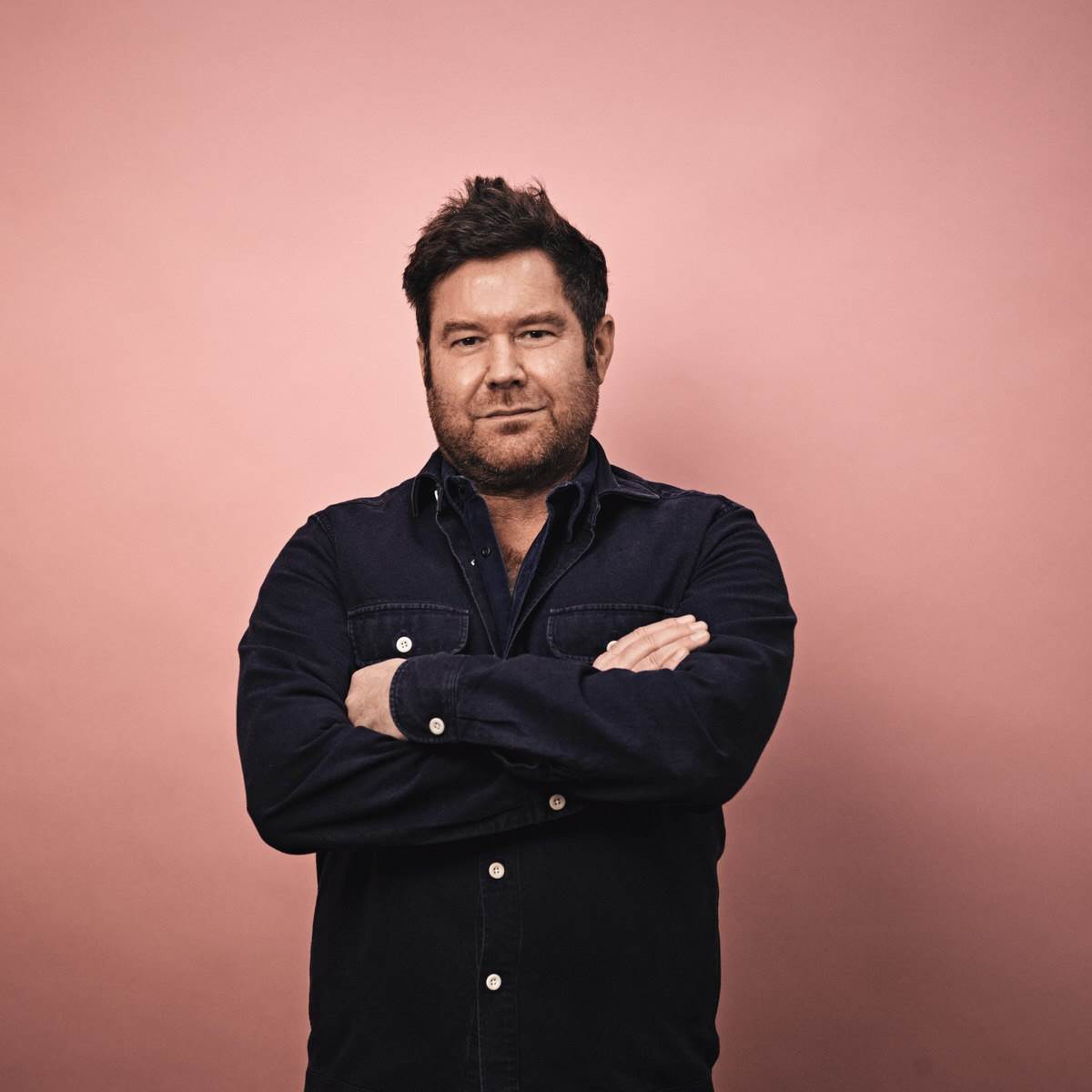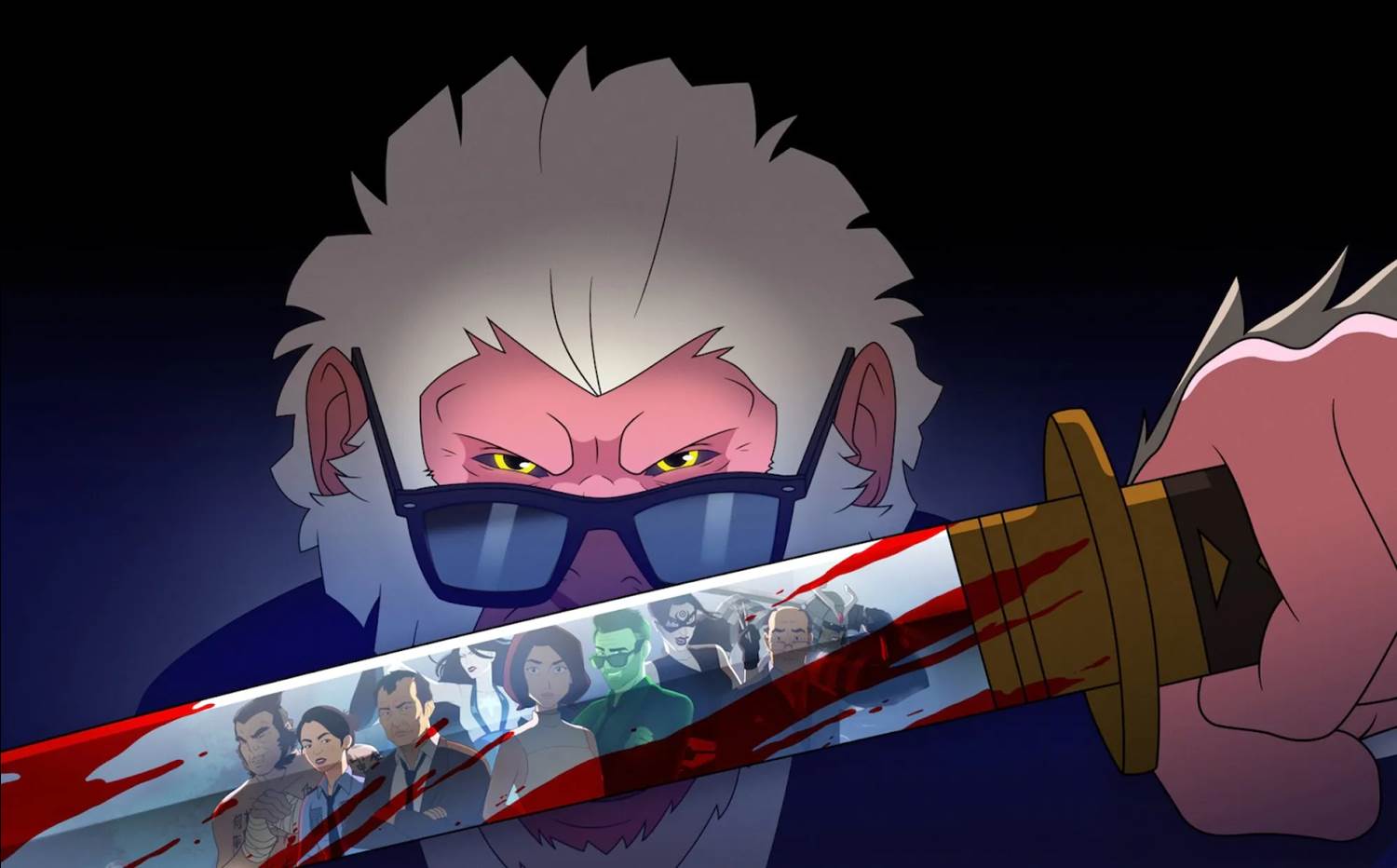Interview: “Hit-Monkey” Co-Creator Josh Gordon on the Hulu Animated Series’ Second Season
Marvel’s animated series Hit-Monkey is back for season 2 on Hulu. Just in time for the show’s return, we had a chance to chat with co-creator Josh Gordon about what’s new in the second season, bringing improv to the animation medium, and much more.
Laughing Place: Hey, Josh. Congratulations on season two of Hit-Monkey.
Josh Gordon: Oh, thank you very much.
LP: It must be great to finally see it out there. I know these things take quite some time to produce and develop.
JG: Yeah. It's funny, you spend so long working in the weeds, and the detail, and all that stuff, that you forget this is a whole piece that has to work together. So it's been really great having it out there and having people react to it. Yeah, it's been awesome.
LP: Speaking of working together, what struck me about the show is you're accomplishing so much. You have obviously this action, gore, Hit-Monkey part. You have the humor, you have the drama, you have the heart, and it's all in one show. Usually something will have one or two of those, and you're able to balance that. That must have taken a lot of thought.
JG: Thank you. Well, I'm glad you think we balanced it. That's something that Will [Speck] and I, my writing and directing partner, have always been drawn to. Which is, we always feel like in life there's drama and comedy in the same moments. People often use humor as a defense mechanism or to cut emotion that they don't want to talk about. It can be revealing instead of just a joke that's constructed just to be a joke, it can come out of character.
So I think that was always what we wanted to try to achieve in this show, was that you could have humor, heart, violence, things that aren't funny, emotion, and then go back to humor, all within the same scene sometimes. So that's just about creating a tone where you tell the audience, "This is how people are using humor, and this is how..." Because humor can be the thing that unbalances it, but sometimes it can be amazing. You look at the original Beverly Hills Cop, Axel Foley would tell a joke to try to disarm somebody, and then out of the corner of his eye see something very serious and turn serious right in the middle of the scene. It was like, “how are they doing this?" It's such an amazing balancing act.
LP: This season you head to New York. How did that change in setting influence the second season?
JG: Well, the first season was very obviously anime inspired. We looked to directors like Wong Kar-wai and Akira Kurosawa and all of these tones that Tokyo just naturally brings with it, which were so cool and so great. But in an interesting way, the supporting characters were more serious in season one. Just the subject matter was more serious, but also coming to New York — New York is a city of such attitude, there's so many people, it allowed us to sort of populate the world suddenly with the Leslie Joneses of the world, and the Jim Gaffigans, and the Rob Corddrys, and all of these much more comedic voices.
But at the same time, we didn't want to suddenly have it become just a joke machine. So we, at the same time, dug into Bryce's backstory, which is very emotional and very much at the thematic core of the movie. So our vision for season two was like, let's make it deeper, richer, more emotional, and funnier at the same time, while creating a weird... Still appropriate for the show, but almost if an anime director came to New York, and how would they approach the mood and tone of the city?
LP: The thing that struck me about the second season was that it seemed to have a whole lot more complexity, and it was amped up. Not that the first season didn't have that, but there was a lot more. There's a lot more to think about, a lot more to the characters. Now that you've been past this, it's out and you've created it a while ago, presumably, what are your recollections of the second season? How do you feel about the character's journeys and what you essentially put them all through?
JG: Yeah, it's funny. I think Will and I, and all the people, when you create the show, you're so close to it and you still see so many... You focus on the triumphs and the, "Oh, that didn't work the way I wanted it, and that worked better than I thought." So it's hard to enjoy it as an audience member because it's still fresh. It usually takes me at least, I don't know how long it takes Will, but it usually takes us about a year before I can watch it and really be so distanced from it that I can enjoy it as a whole thing.
But I think the recollection was just how satisfying it was to get a second season, because it was a show that had to fight for its life, and the opportunity to suddenly continue with these characters was such a gift for us because we love the backstory that we always knew existed for Bryce. We always knew he had this wrecked, tragic, emotionally bankrupt existence in New York. You hinted at it in season one, but to unpack that was really satisfying. To get Cristin Milioti to play his daughter, she's such a good actress, and to be able to really tell that story, I think was probably one of the most satisfying parts of the season.
LP: You touched on it briefly, but obviously the new story and the new setting for a lot of new characters, a lot of new voice actors, and many that we all know the names of. What was it like to work with bringing these new folks into the Hit-Monkey world?
JG: It's one of the greatest things about animation. Will and I come from live action, and the great advantage of... But we come from an improv background, meaning we've made movies where you have actors working in a very loose way, and what we wanted to do was bring that into the animation process. That's not new, a lot of people do that, but we really wanted to allow the actors in the scenes to breathe and to have the rhythm of natural dialogue, and all these kinds of things. Even when we're covering the scenes in animation, to have it feel as if you shot these in a real scene and then cut it together in that style.
So it was amazing working with them. They're obviously some of the greatest comedians around, and some of the best improvers. But I think the thing that surprised us was, especially with some of these people, how deep and rich their dramatic chops were. If you're really great at comedy, you tend to be really good at drama as well. But having these characters stretch those legs was amazing. [Jason] Sudeikis can go from being hilarious and sarcastic and irreverent to delivering an emotional monologue, and it's heartbreaking. That was really super satisfying, actually.
LP: Some of those folks have had that chance, but was there anyone that appreciated the levels they were able to bring to Hit-Monkey, perhaps just because of the style of show it is that they might not get in a broad comedy or anything like that?
JG: You mean from the actors?
LP: Yes.
JG: You'd have to ask them, but I think Leslie Jones came with such an incredible zest for it. She wanted to know every backstory of every character that she was interacting with. It was almost like she was an audience, she couldn't contain her excitement over it, and then so owned that character, and was so funny, and so irreverent and emotional. That was a real treat this season, was working with Leslie.
LP: To wrap up, the show's out, and you've been able to see the reaction. There's many shows that have that sophomore slump, and this is not one of them. So, how's that felt?
JG: It feels great. It's super gratifying. Look, when you make something, you make it ultimately first for yourself, and you make it for the people that you're making it with. Then you hope that people see what it is that you were trying to go for. When they do, it's like you feel connected to strangers, you feel connected to the world. It's one of the best things about doing what we do, is somebody that I've never met, Will's never met, maybe even in a different country, is watching this thing and relating to it in the same way that you related to it. So, it's gratifying and great.
LP: Well, congratulations. Thanks for taking the time out to chat with me, and best wishes on your next adventure.
JG: Thank you so much, man.
Hit-Monkey is now streaming on Hulu.


